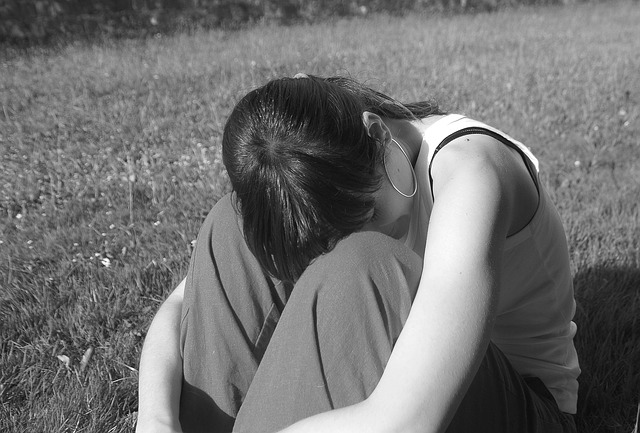Social phobia, also known as social anxiety disorder, a chronic form of fear, anxiety and nervousness that a person feels whenever confronted with social situations and interactions.The person feels intense consciousness while doing everyday tasks such as eating, drinking or speaking in front of other people, and start worrying persistently prior to any such event. A person having social phobia feels as if he/she is being watched and judged by the people, and often fears public embarrassments.
A person may avoid any functions and gatherings completely which disrupts the social functioning of that person. Almost in all cases, the person realizes that their fear is unreasonable and affecting their daily lives. However, his/her inability to overcome the fear may leave him/her deeply depressed and upset.

How common is social phobia?
At least 1 in 8 adults are likely to have social phobia once in their lifetime. Nearly, 15 million American adults suffer from this disorder, excluding the several unnoticed cases. This disorder often starts in early childhood itself or during adolescence. Both men and women are equally prone to get this disorder. Studies show that heredity and genetic factors may help in developing this disorder.
What Causes Social Phobia?
Social Phobia can be caused by combination of different biological and environmental factors. Any unwanted incident occurred in social situations might trigger the fear and anxiety in the person, and developing social phobia in the long run. Low levels of brain chemicals like Serotonin and an active level of brain structure namely Amygdala are also are responsible in creating the distress and fear constantly. Social Phobia have also been associated with genetic and heredity factors.
What are the symptoms?
In children and teens
- Fear and worried about speaking with new people
- Extreme nervousness while answering in class or talking with classmates and teachers
- Fear of rejection from friend circles
- Fear of getting embarrassed and humiliated
- Avoiding school, family gatherings or any such social events
- Negative images of oneself, and having self- doubts
- Physical symptoms of anxiety: trembling, stomach ache, dry mouth, racing heartbeat, confusion, nausea and vomiting, sweating, difficulty in swallowing and freezing up
In adults
- Intense fear and anxiety about performing social interactions like speaking in a group or eating and drinking infront of others
- Constant feel of being watched and judged
- Fear of rejection from social groups
- Fear of getting humiliated and embarrassed in front of others
- Avoidance from workplace, or any social events
- Extreme self- consciousness while doing any task in front of others
- Lack of confidence and self-doubt
- Realization that he/she is having a serious problem, and yet not being able to overcome it
- Physical symptoms of anxiety; trembling, stomach ache, dry mouth, racing heartbeat, confusion, nausea and vomiting, sweating, difficulty in swallowing and freezing up
When to visit a doctor?
Many times, you could get confused between normal shyness and social phobia. If the person had been showing above symptoms for a time period extending over six months constantly, then you should visit a doctor and start treatment. If the disorder is left untreated, it may last for years or even for the lifetime.
How is it treated?
Social Phobia can be treated using medicines and cognitive behavioral therapy. The person can also get supported self-help therapies as alternative therapy.
Medicines
Generally, the medicines for social phobia include anti-anxiety and anti-depressant medications to control the thoughts, fear and distress. They improve the condition in a few weeks time. They should be strictly taken under the supervision from a doctor. Regular assessment is needed to decide how long the person should take the medicines.
Cognitive Behavioral Therapy (CBT)
One of the important parts of treatment is cognitive behavioral therapy. The therapy is focused on helping the person realize the cause agents of the behavior himself. The therapist teaches the person to deal with the cause factors, and change the way he thinks about it. Moreover, the therapist would recognize the negative thoughts surrounding the social events and people, and counsel him to overcome them. CBT therapist also helps the person develop appropriate to a fearful situation, and improve social skills.
Supported self-help
If the psychotherapy is not being effective in the first place, supported self-help can also be provided through means of therapy books, or computer application. There are several self-help guideline books and applications available online, to guide yourself through improvement. Eventually, you’d learn yourself and can meet therapist for further treatment sessions.